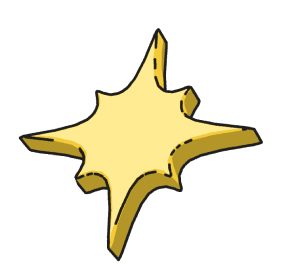Diploma in Applied Science
Other Science
A course by
AUT
Develop knowledge of different science disciplines with this one-year science diploma, preparing for either further study or broad-based careers in science.
In-person study
Face-to-face learning in a physical classroom setting
City Campus, Auckland
It will take a total of 1 year
Core skills this course teaches

Develop foundational knowledge in multiple science disciplines
Gain an understanding of core concepts and methodologies across a range of science subjects including biology, chemistry, physics, environmental science, and mathematics.

Prepare for further undergraduate study in science
Acquire the necessary academic foundation to progress into a Bachelor of Science program at AUT or other tertiary institutions.

Prepare for science and laboratory careers
Build practical skills and theoretical knowledge applicable to entry-level science and laboratory roles in a range of industries.
What You're Signing Up For
The Diploma in Applied Science at AUT is a one-year (full-time) program designed to provide students with foundational and applied knowledge across a range of science disciplines. Students complete 120 points by selecting eight courses from different science subjects, including biology, chemistry, ecology, human anatomy, physics, astronomy, environmental science, health, food science, geospatial analysis, mathematics, statistics, and more. The diploma is suitable for students seeking preparation for further undergraduate science study or to develop skills for science and laboratory work in various industries.
Course Content
- Foundation Biology
- Foundation Chemistry
- Foundation Ecology
- Foundation Human Anatomy and Physiology
- Foundation Biophysics
- Introductory Astronomy
- Introduction to Biomedical Science
- Principles of Chemistry
- Biological Chemistry
- Programming Concepts and Techniques
- Object Oriented Programming
- Biodiversity
- Collaborative Practices
- Earth Science
- Environmental Science
- Food Science
- Food Technology
- Geospatial Science
- Health and Environment
- Human Anatomy and Physiology
- Mathematics for Science
- Microbial Life
- Physics for Scientists and Engineers
- Science and Society
- Applied Statistics
- Probability and Statistics
- Climate Action
- Space, Time and Gravity
- Astrophysics and Space Science
- Molecular Biomedicine
- Natural Biomedical Products
- Inorganic Chemistry
- Biochemistry
- Organic Chemistry
- Instrumental Analysis
- Thermodynamics and Chemical Kinetics
- Ecology and Evolution
- Plant and Animal Taxonomy
- Earth Science Systems
- Tectonic Processes and Climate Change
- Environmental Cycles and Flows
- Environmental Threats and Risks
- Food Microbiology
- Food Engineering
- Cells, Genes and Molecules
- Geospatial Analysis and Skills
- Environmental Health
- Marine Science
- Biology of Marine Organisms
- Algebra and Calculus
- Modelling and Differential Equations
- Quantitative Decision Analysis
- Medical Microbiology
- Scientific Inquiry
- Science Practice in Aotearoa
- Applied Sports Biomechanics
- Forecasting
- Statistical Inference
- Statistical Data Analysis
What you need to know first
Completion of Year 12
NCEA: 48 level 2 credits including eight level 2 credits in any one subject from Biology, Chemistry, Earth and Space Science, Physics, Science
CIE: 60 points on the UCAS Tariff, including any one subject similar to the NCEA subjects listed above

What sort of industry will this job lead to
Science
Laboratory
Education

Future employment opportunities might be
Entry-level science roles
Laboratory technician
Technical assistant in scientific industries